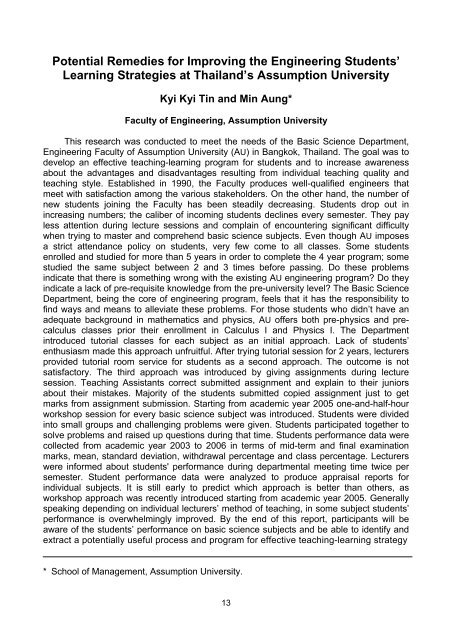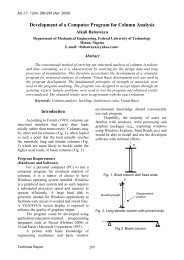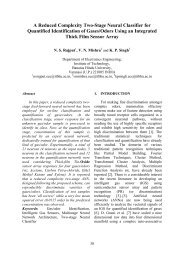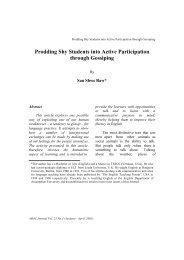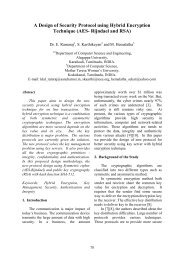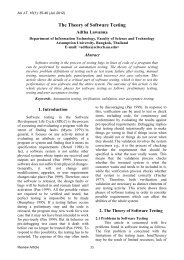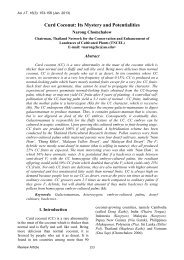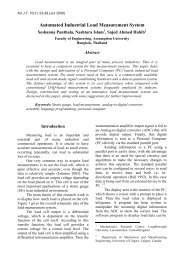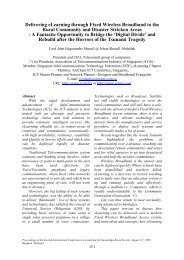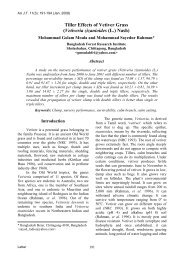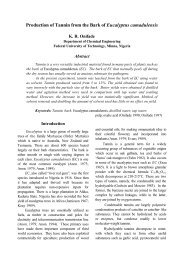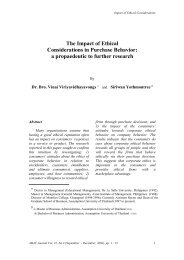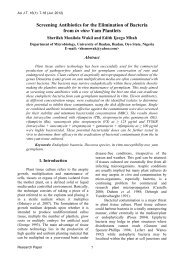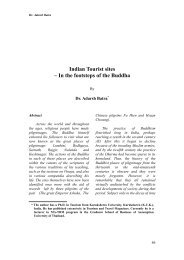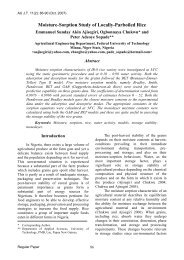AU Abstracts 2008 - AU Journal - Assumption University of Thailand
AU Abstracts 2008 - AU Journal - Assumption University of Thailand
AU Abstracts 2008 - AU Journal - Assumption University of Thailand
Create successful ePaper yourself
Turn your PDF publications into a flip-book with our unique Google optimized e-Paper software.
Potential Remedies for Improving the Engineering Students’<br />
Learning Strategies at <strong>Thailand</strong>’s <strong>Assumption</strong> <strong>University</strong><br />
Kyi Kyi Tin and Min Aung*<br />
Faculty <strong>of</strong> Engineering, <strong>Assumption</strong> <strong>University</strong><br />
This research was conducted to meet the needs <strong>of</strong> the Basic Science Department,<br />
Engineering Faculty <strong>of</strong> <strong>Assumption</strong> <strong>University</strong> (<strong>AU</strong>) in Bangkok, <strong>Thailand</strong>. The goal was to<br />
develop an effective teaching-learning program for students and to increase awareness<br />
about the advantages and disadvantages resulting from individual teaching quality and<br />
teaching style. Established in 1990, the Faculty produces well-qualified engineers that<br />
meet with satisfaction among the various stakeholders. On the other hand, the number <strong>of</strong><br />
new students joining the Faculty has been steadily decreasing. Students drop out in<br />
increasing numbers; the caliber <strong>of</strong> incoming students declines every semester. They pay<br />
less attention during lecture sessions and complain <strong>of</strong> encountering significant difficulty<br />
when trying to master and comprehend basic science subjects. Even though <strong>AU</strong> imposes<br />
a strict attendance policy on students, very few come to all classes. Some students<br />
enrolled and studied for more than 5 years in order to complete the 4 year program; some<br />
studied the same subject between 2 and 3 times before passing. Do these problems<br />
indicate that there is something wrong with the existing <strong>AU</strong> engineering program? Do they<br />
indicate a lack <strong>of</strong> pre-requisite knowledge from the pre-university level? The Basic Science<br />
Department, being the core <strong>of</strong> engineering program, feels that it has the responsibility to<br />
find ways and means to alleviate these problems. For those students who didn’t have an<br />
adequate background in mathematics and physics, <strong>AU</strong> <strong>of</strong>fers both pre-physics and precalculus<br />
classes prior their enrollment in Calculus I and Physics I. The Department<br />
introduced tutorial classes for each subject as an initial approach. Lack <strong>of</strong> students’<br />
enthusiasm made this approach unfruitful. After trying tutorial session for 2 years, lecturers<br />
provided tutorial room service for students as a second approach. The outcome is not<br />
satisfactory. The third approach was introduced by giving assignments during lecture<br />
session. Teaching Assistants correct submitted assignment and explain to their juniors<br />
about their mistakes. Majority <strong>of</strong> the students submitted copied assignment just to get<br />
marks from assignment submission. Starting from academic year 2005 one-and-half-hour<br />
workshop session for every basic science subject was introduced. Students were divided<br />
into small groups and challenging problems were given. Students participated together to<br />
solve problems and raised up questions during that time. Students performance data were<br />
collected from academic year 2003 to 2006 in terms <strong>of</strong> mid-term and final examination<br />
marks, mean, standard deviation, withdrawal percentage and class percentage. Lecturers<br />
were informed about students' performance during departmental meeting time twice per<br />
semester. Student performance data were analyzed to produce appraisal reports for<br />
individual subjects. It is still early to predict which approach is better than others, as<br />
workshop approach was recently introduced starting from academic year 2005. Generally<br />
speaking depending on individual lecturers’ method <strong>of</strong> teaching, in some subject students’<br />
performance is overwhelmingly improved. By the end <strong>of</strong> this report, participants will be<br />
aware <strong>of</strong> the students’ performance on basic science subjects and be able to identify and<br />
extract a potentially useful process and program for effective teaching-learning strategy<br />
* School <strong>of</strong> Management, <strong>Assumption</strong> <strong>University</strong>.<br />
13


